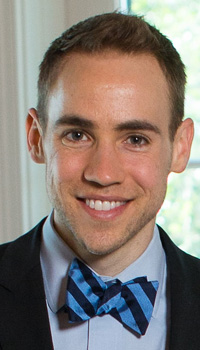
As an Associate Professor of Psychology and Canada Research Chair in Social Perception and Cognition, I study how people perceive and extract trait and social information about each other and what they then do with that information. Sometimes these impressions are correct, but often they are not. Understanding the processes by which people gather and act on information about each other holds value for gaining a sense of how they think, behave, and build societies and cultures that exert influence on a larger scale.
I started as a faculty member at the University of Toronto in 2010 just after receiving a PhD at Tufts University working with the late Nalini Ambady. Nalini was known for her excellence in mentorship and taught me a lot not just about psychology but about productivity and how to organize and run an efficient laboratory. My style, adopted from her, is to see my job as empowering my students to achieve their best potential. I have been blessed to work with many talented undergraduate, graduate, and postdoctoral students whose intelligence far surpasses my own. Although we are united by a common interest in the study of person perception, I believe that we can each accomplish a lot more if they find their own voices rather than serving as a megaphone for mine. That often means that my own pet interests take a back seat. But working together collaboratively allows my students to stand strong on their own legs and seeing them do so is as exciting and rewarding as the thrill of discovering something new first myself.
My work style is therefore a kind of service-based model. I work very hard for my students and expect that they will reciprocate by working hard as well. I’m a bit old-fashioned in how I do this. Sure, I depend on my smartphone to keep connected with my students over email and text. But there’s also a telephone in that smartphone that can often be a much more efficient tool for getting things done. For someone who studies person perception and nonverbal behavior, I’m surprisingly unenthusiastic about video-chat programs like Skype and FaceTime. I likewise find that a lot of time is lost in scheduling face-to-face meetings. My experience is that a lot of people come to meetings with anxiety and expectation, which frequently subvert the efficiency of the meeting. Plus, calendar juggling is a definite time gremlin. I instead have an open-door policy and only shut my office door when I really need to devote 100% of myself to something. Most of my official scheduled meetings really only have 5-10 minutes of true substance, so a lot of time and effort are wasted coordinating something that a quick drop in can achieve.
An unprogrammed schedule also permits flexibility and adaptation. Being able to bend prevents one from breaking and this is mirrored in how I interact with technology, to some extent. I like to have both a Mac (right now my laptop) and a PC (right now my desktop). I have two desks in my office: one for sitting and meeting, another for standing and stretching my legs. I try not to fatigue myself on one kind of task (e.g., writing) but move on to a different sort (e.g., data analysis) once I find that I’m losing efficiency.
Without boundaries, however, flexibility can slip into chaos. I therefore have to discipline myself with strict limits. Several years ago, I stopped checking email before bed and now I sleep a lot better. I make sure to wind down every day by exercising or watching TV—something that takes my mind out of the minutiae of work and allows me to reconnect to the bigger picture. As a psychological scientist, I think it’s important to remember that I study people as much as I do ideas. Data about people might come as numbers but those numbers represent thoughts and behaviors. I find that studying the science of being a person can ironically make it far too easy to stray away from understanding what it’s actually like to be one. I therefore consider it important to stay connected to the landscape of the countryside while tending my very small shrubs beneath the tall canopy of the forest. Being a whole person is important for any worker but perhaps particularly so for one whose work is people. Technology can sometimes help with the quantity of our interactions but emerging studies seem to consistently suggest that it undermines the quality of them. I make sure to take time every day for my family and our rule is to try to have dinner together every night. That has enormous value for me and I think provides the critical enrichment that allows me to bound out of bed every morning recharged, centered, and focused to start my day.
—–
Nick Rule
